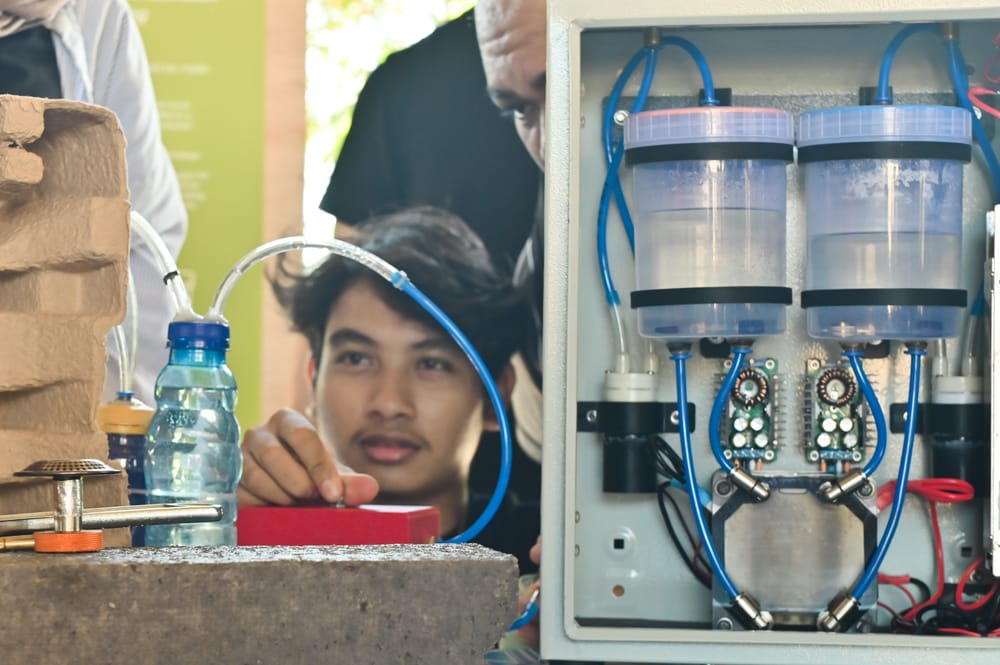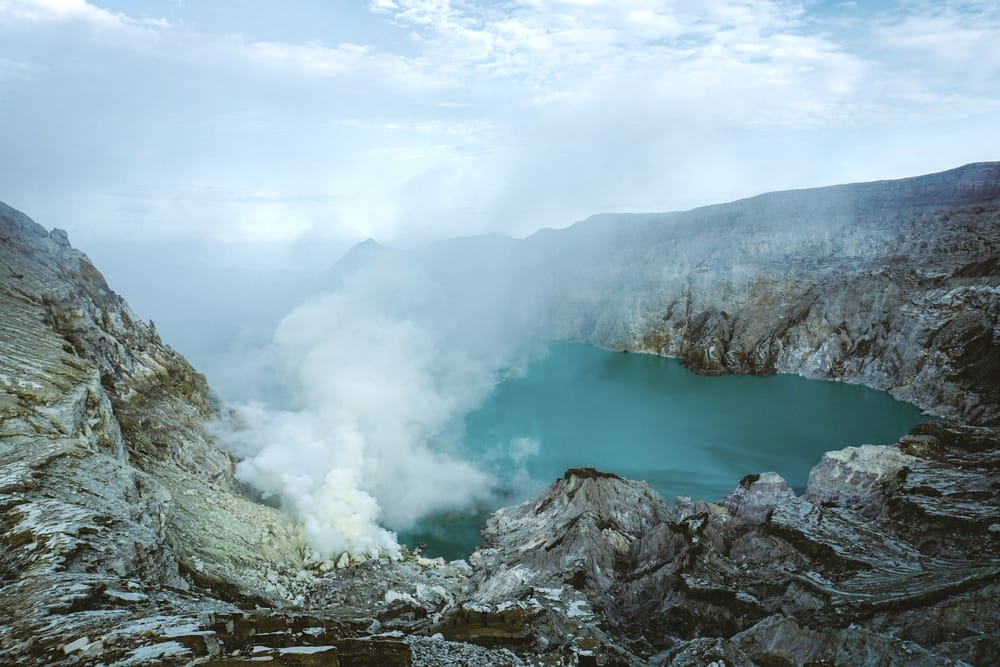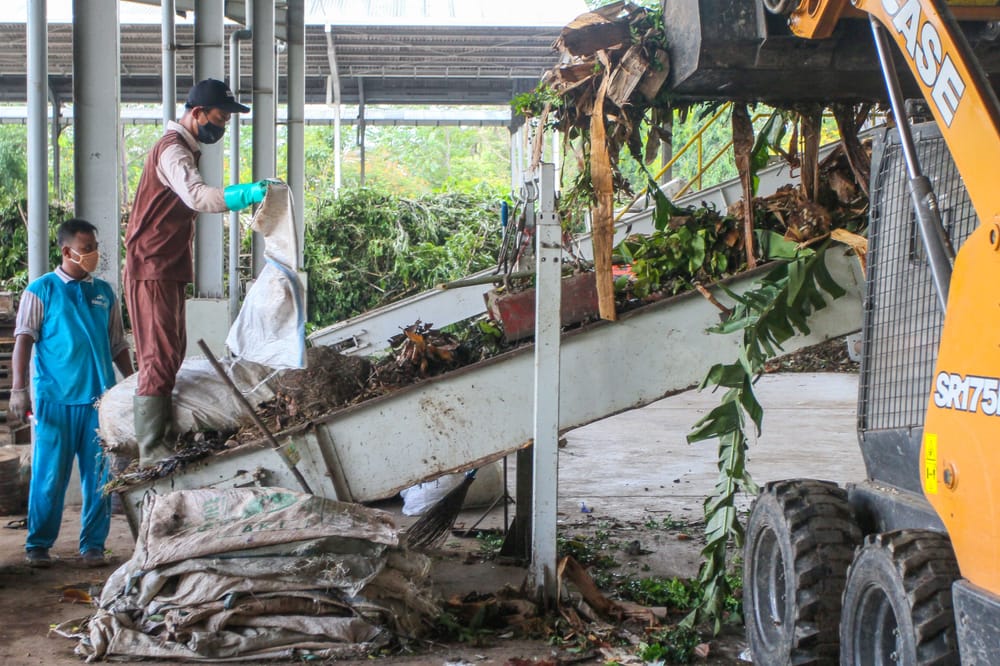They have been calling for this for a long time. The manufacturing industry is asking for certainty of supply and more affordable gas prices following the policy of limiting certain natural gas prices (HGBT), which is considered to have a negative impact on the industry.
The food and beverage industry is one of those affected by the implementation of the regulation. According to Chairman of the Food and Beverage Entrepreneurs Association Adhi Lukman, several factories were forced to lay off employees due to the HGBT quota restrictions.
"This will have a very big impact. Some of our members have calculated losses in the event of a shutdown, ranging from production losses, export losses, and so on," Adhi told SUAR in Jakarta, Monday (18/8).
It's not just the policy of limiting gas price quotas for certain and strategic sectors that entrepreneurs are facing. PT Perusahaan Gas Negara (PGN), through its written letter, announced that the maximum usage of gas in industry in the period August 13 to August 31, 2025 would be 48% due to force majeure reasons.
The limited gas supply is due to a decrease in the volume supplied by gas suppliers or upstream oil and gas cooperation contractors (KKKS) in August 2025.
In addition to the loss of production stoppages, Adi added, his party also suffered losses in surcharges or additional costs that varied between US$ 11-US$ 15, depending on usage.
Post-restriction of supply, Adhi has received reports of a number of food & beverage industry players who are unable to fulfill export orders from abroad due to this gas restriction.
"Now they have to stop production and reduce labor, as well as reduce production capacity, which has a very broad impact," he said.
The food and beverage (F&B) industry is an industry that requires HGBT. The industry contributed 41.15% to non-oil and gas Gross Domestic Product (GDP), which is equivalent to 7.2% of national GDP in the first quarter of 2025.
However, the government has now decided: this crucial sector is excluded from the list of HGBT recipients and must purchase gas supplies at market prices.
This has affected production activities amid restrictions on certain natural gas price quotas (HGBT).
In addition to the food and beverage industry, the ceramic industry sector has also felt a major impact due to the HGBT restriction policy by laying off hundreds of workers.
"Most recently, two tableware industries in Tangerang were forced to lay off around 700 employees. This is due to restrictions on the HGBT utilization quota, and when entering the LNG regasification gas surcharge, the price is expensive," said Chairman of the Association of Various Ceramic Industries (Asaki), Edy Suyanto, as quoted by CNBC Indonesia.
Asaki deeply regrets that the protracted gas supply disruption with no solution or improvement in gas supply has taken its toll,
"The government needs to find an immediate solution regarding gas supply disruptions, so that more industries do not lay off employees. We are worried that later it could be more than that, there is the potential for layoffs," said Edy.
Open an industrial crisis center
Distressed industry players are now anxiously awaiting the government's follow-up through the Ministry of Industry, which has taken a responsive stance by opening the HGBT User Industry Crisis Center.
Spokesperson for the Ministry of Industry, Febri Hendri Antoni Arief, explained that the move to establish the crisis center was taken following the increasing number of reports from domestic industry players regarding supply restrictions, decreased gas pressure received, and the high gas prices charged.
"There are no issues or technical problems with gas production and supply from the upstream gas industry. We do not want a repeat of the incident in the domestic industry, with an import relaxation policy that resulted in a decrease in production utilization, industrial closures and workforce reductions in the textile and textile products (TPT) and footwear industries," Febri said in a press release received by SUAR, Tuesday (19/08).
Regarding the supply disruption, the Secretary of Perusahaan Gas Negara (PGN), Fajriyah Usman, stated that his party fully understands the complaints of industry players about the sudden restrictions.
According to him, as one of the natural gas distributors, PGN has committed to a stable and affordable energy supply in accordance with government regulations.
"Gas for the seven industrial sectors receiving HGBT comes from certain upstream fields in Sumatra and Java that are determined by the government, both in volume and source. In accordance with the Decree of the Minister of Energy and Mineral Resources, the amount of gas received by HGBT customers depends on the availability of supply in the upstream field. If the supply is sufficient, customers receive the full amount. But if there is a decrease in production due to maintenance or shutdown, the volume can decrease," Fajriyah explained in a written statement to SUAR, Monday (18/08).
The seven manufacturing industry sectors receiving HGBT based on the Minister of Energy and Mineral Resources' decision include fertilizers, petrochemicals, oleochemicals, steel, ceramics, glass, and rubber gloves.
Outside of these seven sectors, manufacturing industry players must seek gas supplies following market mechanisms with higher and more volatile prices because they refer to global oil prices and involve longer and more complex distribution chains, especially those supplied in the form of LNG.
Not quite successful yet
Adhi explained that the determination of the seven HGBT recipient sectors was the result of the efforts of industry players and the Ministry of Industry, which was not easy to fight for to the Ministry of Energy and Mineral Resources. "However, the Ministry of Industry's struggle to grant HGBT to all sectors has not been successful," said Adhi when contacted by SUAR, Monday (18/08).
According to Adhi, a number of F&B industry players have accepted an invitation from PGN to deliberate and find the best solution.
"I leave this [resolution] to PGN. Hopefully, we as an association will be invited to a dialog to find the best solution, because in principle, we also want to support the growth of the national industry," concluded Adhi.
Although PGN has made various clarifications, Chairman of the Natural Gas Users Industry Forum (FIPGB) Yustinus Gunawan regrets PGN's response, which immediately states that the supply of natural gas in the upstream is beyond PGN's control and leaves the supply problems of a number of non-HGBT recipient industries to market mechanisms.
"With a very detailed calculation as stated in the ministerial decree, producers in the upstream must have calculated very carefully, including if there are maintenance and technical problems during production. If PGN says the problem is upstream, is there data transparency or not? Which upstream?" said Yustinus when contacted by SUAR, Tuesday (19/08).
He added that FIPGB and the Ministry of Industry have requested clarity on the transparency of upstream natural gas production since 2022 and 2023. However, distributors have repeatedly stated that production data is confidential.
Furthermore, Yustinus doubts PGN's intention to dialog with industry players.
"I am skeptical that PGN [invites] dialogue to replace. They always buy time with technical reasons, there is a pipe fire, there is force majeure. Their letter to users is a disclaimer, not a liability. Although they say they only distribute, we need transparency downstream," he said.
He reminded that the wealth of national natural gas should not make it difficult for domestic manufacturing industry players. "Don't let us be like dead rats in a barn," Yustinus concluded.
Executive Director of the Center of Reform on Economics (CORE) Indonesia, Mohammad Faisal, reflected on the momentum of the restriction of natural gas supply for this industry as a note for the government to take lessons from this manufacturing industry crisis.
"The homework is that restrictions must be followed by a monitoring mechanism and bottleneck anticipation. If the purpose of the restrictions is to ensure that the allocation of HGBT is right on target, do not let the industry that needs it not get the supply it should, thus exacerbating the existing problems," Faisal said in a brief statement to SUAR, Tuesday (19/08).
Authors: Christian Wibisana & Tria Dianti






